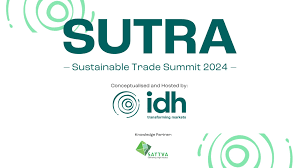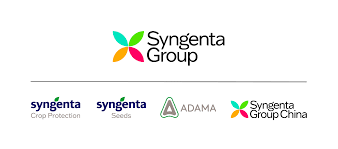Govt of Odisha and ICRISAT launch a Compendium of Regenerative Agriculture
This compendium, developed through Govt of Odisha partnership with ICRISAT, is an essential tool for scaling regenerative agriculture practices tailored to the local context, especially for key crops such as millets, pulses, and oilseeds
A ‘Compendium of Regenerative Agriculture’ developed by ICRISAT in partnership with the Government of Odisha was launched on 10 November 2024 during the International Symposium on Shree Anna and Forgotten Foods held in Bhubaneshwar. This high-level event was graced by prominent dignitaries, including the Chief Minister of Odisha Mohan Charan Majhi, and his entourage of officials.
The publication was officially released by Dr Arabinda K Padhee, Principal Secretary of Agriculture, Odisha, Mr Hemant Sharma, Principal Secretary of MSME and Energy, Odisha, Dr Tara Satyavathi, Director of ICAR-IIMR, and Dr ML Jat, Research Program Director of Resilient Farm and Food Systems. This resource, a product of ICRISAT’s innovation project on carbon credits supported by the Department of Agriculture and Farmer’s Empowerment, Government of Odisha, aligns with the CGIAR Initiative on Agroecology and serves as a roadmap for sustainable agricultural transformation.
Speaking at the launch, Dr Padhee stated that as the global community renews its focus on regenerative agriculture, Odisha is leading science-based agricultural transformation.
“The Government of Odisha’s commitment to regenerative agriculture is a decisive step toward a resilient and sustainable future—one that nurtures farmers’ livelihoods, restores ecosystems, and strengthens communities,” said Dr Stanford Blade, Director General-Interim and Deputy Director General-Research, ICRISAT.
The publication highlights five key principles of regenerative agriculture: minimizing soil disturbance, maximizing crop diversity, maintaining soil cover, keeping living roots year-round, and integrating livestock. Each principle is explored in-depth, emphasizing its role in enhancing soil health, increasing carbon sequestration, and building resilience against climate challenges. By providing a holistic view of these practices, the compendium underscores the importance of moving beyond traditional farming techniques to cultivate healthier ecosystems.
It was a proud moment for ICRISAT when Rajput GPLF from Koraput district was honored as one of the top three Self Help Groups for its millet-based enterprises. In collaboration with Odisha Livelihoods Mission (OLM) and Mission Shakti, ICRISAT helped establish the millet processing unit in Koraput, operated by Rajput GPLF. Since 2023, this unit has provided nutritious meals to over 3,500 children. This recognition highlights the impactful collaboration between ICRISAT, the community, and state and district initiatives in advancing nutrition and food security.
Over 400 participants, including representatives from FAO, WFP, CGIAR, ICAR, and Farmer Producer Organizations, attended the event in Odisha.
This compendium, developed through Govt of Odisha














